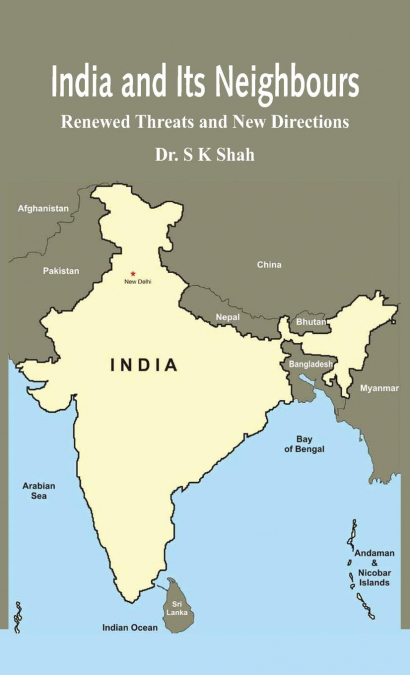
Dr. S K Shah
The changing scenarios in the India’s neighbourhood and in the global order over the past decade have made India to take a close look at her national interests. The bipolar world has given way to a non-polar world in which several new powers have emerged. India has to formulate policy options about her foreign and security policies. The policy makers have to think about India’s relations with some of the important countries in her immediate neighbourhood, develop plausible scenarios for each of them, and propose options for consideration by the concern authorities. The Indian policymakers will have to think about the likely challenges and the opportunities that may emerge within next ten years. India’s foreign policy has always regarded the concept of neighbourhood as one of widening concentric circles, around a central axis of historical and cultural commonalities. The guiding principles of India’s Foreign Policy have been founded on Panchsheel, pragmatism and pursuit of national interest. In a period of rapid and continuing change, foreign policy must be capable of responding optimally to new challenges and opportunities. India has formal diplomatic relations with most nations, as the world’s second most populous country, the world’s most-populous democracy and one of the fastest growing major economies in the world. With the world’s tenth largest military expenditures, tenth largest economy by nominal rates and third largest by purchasing power parity; India is a regional power, and a potential Superpower. It is India’s growing international influence that increasingly gives it a more prominent voice in global affairs. Narendra Modi took the oath of office as India’s 14th prime minister. Among his first decisions as head of government – in fact, it was set in motion even before the formal start of his tenure – was an unconventional act of diplomacy: inviting eight foreign leaders of neighbouring countries to attend his inauguration. While many commentators claimed before his election that Modi would be a nationalist hardliner, a foreign affairs novice, or simply more of the same on external affairs, the prime minister instead proved more active and (perhaps less surprisingly) more pragmatic than many had expected. In two years, Modi has displayed an instinctive understanding of power in the conduct of world affairs, and he has also benefited from being less politically hamstrung than his predecessor Manmohan Singh, with whose worldview he in fact shares much in common. This book contains the fundamental and basic information of the subject.